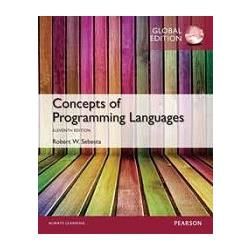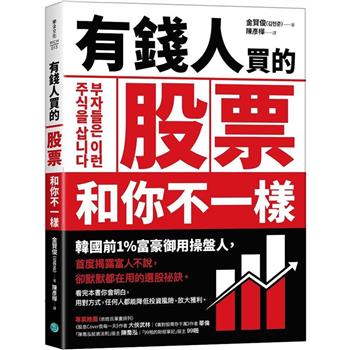For courses in computer programming.
Evaluating the Fundamentals of Computer Programming Languages
Concepts of Computer Programming Languages introduces students to the fundamental concepts of computer programming languages and provides them with the tools necessary to evaluate contemporary and future languages. An in-depth discussion of programming language structures, such as syntax and lexical and syntactic analysis, also prepares students to study compiler design.
The Eleventh Edition maintains an up-to-date discussion on the topic with the removal of outdated languages such as Ada and Fortran. The addition of relevant new topics and examples such as reflection and exception handling in Python and Ruby add to the currency of the text. Through a critical analysis of design issues of various program languages, Concepts of Computer Programming Languages teaches students the essential differences between computing with specific languages.
本書特色
Concepts of Computer Programming Languages uses the following features to facilitate learning:
UPDATED! The most current information on contemporary computer programming languages
●REVISED! Much of the discussion on outdated languages Ada and Fortran have been removed, including:
。Chapter 6 description of Ada’s records, union types, and pointers.
。Chapter 8 discussion of Ada’s for statement.
。Chapter 10 example Main_2 has been rewritten from Ada to Javascript.
。Chapter 11 section on Ada’s abstract data types.
●Chapter 4 discusses the important topics of lexical and syntactical analysis and can stand alone from the rest of the book as its own source material.
●REVISED! Chapter 12 has been substantially revised with new sections and paragraphs, including an added a section on reflection with two complete program examples and a table of design choices of common languages that support object-oriented programming.
●Chapters 5-14 discuss in detail the design issues of contemporary programming languages, using specific examples to demonstrate each.
。Chapter 5 covers the many characteristics of variables.
。Chapter 6 explains different data types.
。Chapter 7 discusses expressions and assignment statements.
。Chapter 8 explains control statements.
。Chapters 9 and 10 cover subprograms and their implementations.
。Chapter 11 examines data abstraction facilities.
。Chapter 12 details language features that support object-oriented programming.
。Chapter 13 discusses concurrent program units.
。NEW! Chapter 14 has added a discussion of exception handling in Python and Ruby.
●Chapters 15 and 16 introduce and explain functional programming and logic programming, two of the most important alternative programming paradigms, with an introduction to and discussion of Scheme, ML, Haskell, and F#, as well as the logic programming language Prolog.
The fundamental concepts of programming languages are taught through detailed examination of specific languages
●Chapter 3 introduces formal methods for describing the syntax and semantics of programming languages.
●Chapters 4 and 10 discuss implementation techniques for various language constructs using lexical and syntax analysis and the implementation of subprogram linkage.
●Coverage of advanced object-oriented topics and languages is integrated throughout.
A historical viewpoint provides context for learning different programming languages
●NEW! Chapter 2 outlines the evolution of various languages to help students get a sense of their histories.
●Historical boxes and interviews with James Gosling, Larry Wall, Alan Cooper, Bjarne Stroustrup, and others put the material in context.
●Valuable historical foundations that set out the origins, purposes, and contributions of the most important languages discussed in the rest of the text are introduced early on.
●In-depth discussions of the design issues faced by the early versions of relevant languages are presented in later chapters.
| FindBook |
有 6 項符合
CONCEPTS OF PROGRAMMING LANGUAGES 11/E (GE)的圖書 |
 |
Concepts of Programming Languages 11E 出版社:全華圖書 出版日期:2016-05-23 語言:英文 規格:平裝 / 800頁 / 普通級/ 單色印刷 / 初版 |
| 圖書選購 |
| 型式 | 價格 | 供應商 | 所屬目錄 | $ 1064 |
社會人文 |
$ 1235 |
原文書 |
$ 1274 |
程式語言 |
$ 1274 |
高等教育 |
$ 1300 |
資訊 |
$ 1300 |
資訊學群 |
|---|
| 圖書館借閱 |
| 國家圖書館 | 全國圖書書目資訊網 | 國立公共資訊圖書館 | 電子書服務平台 | MetaCat 跨館整合查詢 |
| 臺北市立圖書館 | 新北市立圖書館 | 基隆市公共圖書館 | 桃園市立圖書館 | 新竹縣公共圖書館 |
| 苗栗縣立圖書館 | 臺中市立圖書館 | 彰化縣公共圖書館 | 南投縣文化局 | 雲林縣公共圖書館 |
| 嘉義縣圖書館 | 臺南市立圖書館 | 高雄市立圖書館 | 屏東縣公共圖書館 | 宜蘭縣公共圖書館 |
| 花蓮縣文化局 | 臺東縣文化處 |
|
|
圖書介紹 - 資料來源:博客來 評分:
圖書名稱:CONCEPTS OF PROGRAMMING LANGUAGES 11/E (GE)
內容簡介
目錄
Ch1: Preliminaries
Ch2: Evolution of the Major Programming Languages
Ch3: Describing Syntax and Semantics
Ch4: Lexical and Syntax Analysis 161
Ch5: Names, Bindings, and Scopes 197
Ch6: Data Types
Ch7: Expressions and Assignment Statements 301
Ch8: Statement-Level Control Structures
Ch9: Subprograms
Ch10: Implementing Subprograms
Ch11: Abstract Data Types and Encapsulation Constructs
Ch12: Support for Object-Oriented Programming
Ch13: Concurrency
Ch14: Exception Handling and Event Handling
Ch15: Functional Programming Languages
Ch16: Logic Programming Languages
Ch2: Evolution of the Major Programming Languages
Ch3: Describing Syntax and Semantics
Ch4: Lexical and Syntax Analysis 161
Ch5: Names, Bindings, and Scopes 197
Ch6: Data Types
Ch7: Expressions and Assignment Statements 301
Ch8: Statement-Level Control Structures
Ch9: Subprograms
Ch10: Implementing Subprograms
Ch11: Abstract Data Types and Encapsulation Constructs
Ch12: Support for Object-Oriented Programming
Ch13: Concurrency
Ch14: Exception Handling and Event Handling
Ch15: Functional Programming Languages
Ch16: Logic Programming Languages
|









